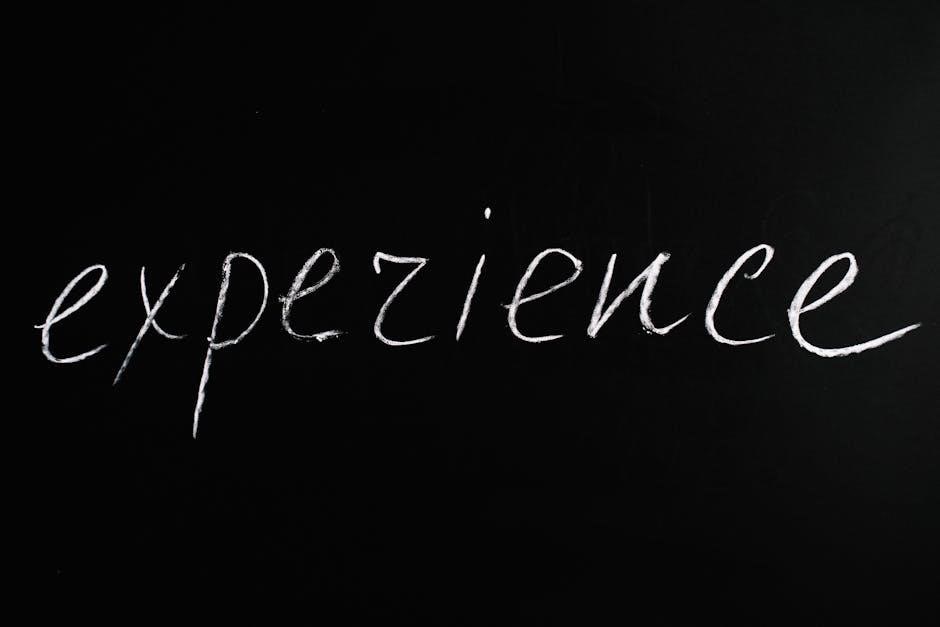Mastering commonly misspelled words is essential for clear communication. This guide provides a comprehensive list of frequently misspelled words‚ organized by difficulty and context‚ to help improve spelling accuracy and confidence. Use the accompanying PDF resource to identify and correct spelling mistakes effectively‚ ensuring professional and academic success.
1.1 Importance of Mastering Commonly Misspelled Words
Mastering commonly misspelled words is crucial for effective communication‚ as spelling errors can lead to misunderstandings and undermine credibility. In professional settings‚ accurate spelling conveys professionalism and attention to detail‚ while in academia‚ it ensures clarity of ideas and adherence to high standards. Misspelled words can distract readers‚ diminishing the impact of otherwise well-crafted writing. By identifying and practicing frequently misspelled words‚ individuals can improve their writing skills‚ enhance their reputation‚ and communicate more confidently. The provided PDF resource offers a structured approach to learning these words‚ categorizing them by difficulty and context to facilitate focused practice. Regular review and practice can significantly reduce spelling errors‚ fostering a stronger command of the English language. This‚ in turn‚ empowers individuals to express themselves more effectively in both personal and professional contexts‚ ultimately contributing to greater academic and career success.
1.2 Overview of the PDF Resource
The PDF resource provides a detailed and organized list of commonly misspelled words‚ tailored to various grade levels and contexts. It includes over ‚ categorized alphabetically and by difficulty‚ making it easy to navigate and study. The resource highlights words often misused due to silent letters‚ homophones‚ and confusing spellings‚ such as “accommodate” and “calendar.” Additionally‚ it offers practical tools like mnemonics and practice exercises to aid memory retention. The PDF is designed for both students and professionals‚ offering a comprehensive guide to improve spelling accuracy. By focusing on high-frequency misspellings‚ it helps users identify common pitfalls and work on them systematically. This resource is an invaluable tool for anyone seeking to enhance their spelling skills and communicate more effectively in both academic and professional settings.

Categories of Commonly Misspelled Words
Commonly misspelled words fall into categories like silent letters (e.g.‚ “island‚” “psychiatrist”) and homophones (e.g.‚ “their/there/they’re”). These groupings help users identify patterns and improve spelling accuracy systematically.
2. with Silent Letters (e.g.‚ “psychiatrist‚” “island”)
Words containing silent letters are notoriously challenging to spell correctly. For instance‚ “island” includes a silent “s‚” while “psychiatrist” has a silent “p.” These letters are present in the spelling but not pronounced‚ often leading to errors. Other examples include “knead” (silent “k”) and “hour” (silent “h”). The unpredictability of silent letters makes these words difficult to master‚ as their pronunciation offers no clue to their spelling. To tackle this category‚ it’s helpful to memorize the correct spellings and practice writing them frequently. Mnemonics or visual reminders can also aid in recalling these tricky words. By focusing on common silent letter patterns‚ learners can significantly reduce spelling mistakes in this category.
2.2 Homophones and Confusing Word Pairs (e.g.‚ “their/there/they’re”)
Homophones and confusing word pairs are a common source of spelling errors. Words like “their‚” “there‚” and “they’re” sound identical but have different meanings and spellings. “Their” refers to possession‚ “there” indicates a location‚ and “they’re” is a contraction of “they are.” Mixing these up can lead to misunderstandings. Other tricky pairs include “affect” and “effect‚” where “affect” is typically a verb and “effect” is a noun. Similarly‚ “your” and “you’re” are often confused‚ with “your” showing possession and “you’re” being a contraction of “you are.” To avoid these mistakes‚ it’s important to understand the contexts in which each word is used. Regular practice and memorization of their meanings can help improve accuracy. Utilizing mnemonic devices or writing exercises can also reinforce proper usage of these commonly confused words.

Words Frequently Misspelled by Grade Level
Students at different grade levels struggle with specific words. Elementary students often misspell “accommodate” and “calendar‚” while middle schoolers find “conscience” and “necessary” challenging. These lists help identify patterns and provide targeted practice.
3.1 Elementary School Level (e.g.‚ “accommodate‚” “calendar”)
At the elementary school level‚ students often struggle with words that have irregular spelling patterns or silent letters. Commonly misspelled words include accommodate‚ calendar‚ definitely‚ friendship‚ and neighborhood. These words often contain double letters‚ silent vowels‚ or unusual combinations that can confuse young learners. For example‚ accommodate is frequently misspelled due to the double “m” and “c‚” while calendar is often confused with “calender;” Practicing these words through repetition and visual aids can help students build a stronger foundation in spelling. The provided PDF resource includes targeted lists for this age group‚ making it easier for teachers and parents to identify and address common challenges early on.
3.2 Middle School Level (e.g.‚ “conscience‚” “necessary”)
At the middle school level‚ students encounter more complex spelling challenges as they progress to higher-grade materials. Commonly misspelled words include conscience‚ necessary‚ definitely‚ independent‚ and occurred; These words often feature silent letters‚ double letters‚ or irregular patterns that can be confusing. For instance‚ conscience is often misspelled due to its similarity to “conscious‚” while necessary is tricky because of the double “c” and single “s.” The PDF resource provides a dedicated section for these middle school-level words‚ offering clear examples and practice exercises. By focusing on these challenging words‚ students can improve their spelling skills and enhance their writing confidence. Regular practice and review of these specific words are essential for mastery at this stage.

Common Misspellings in Specific Contexts
Misspellings often occur in specific contexts like academic writing and professional communication. Words such as accommodate and calendar are frequently misspelled in academic papers‚ while conscience and necessary are common errors in professional emails and reports.
4.1 Misspellings in Academic Writing
In academic writing‚ misspellings often occur due to complex vocabulary and tight deadlines. Words like accommodate‚ calendar‚ and necessary are frequently misspelled. These errors can undermine credibility‚ even in well-researched papers. Additionally‚ words with silent letters‚ such as definitely and conscience‚ are commonly miswritten. Homophones like their/there/they’re also pose challenges. Academic contexts often require precise terminology‚ making spelling accuracy critical. Regular proofreading and the use of spell-checking tools can help mitigate these issues. Students and professionals alike benefit from practicing frequently misspelled words to enhance their writing quality and professionalism. By addressing these common pitfalls‚ individuals can produce polished academic work that reflects their knowledge and dedication.
4.2 Misspellings in Professional Communication
In professional settings‚ misspellings can significantly impact perceptions of competence and attention to detail. Commonly misspelled words in workplace communication include accommodate‚ calendar‚ and necessary. These errors often appear in emails‚ reports‚ and presentations‚ where clarity is paramount. Homophones like their/there/they’re and words with silent letters‚ such as definitely and conscience‚ are particularly prone to misspelling. Additionally‚ words like exhilarate and independent frequently cause confusion. Employers and clients may view such mistakes as a lack of professionalism. To maintain a polished image‚ professionals should regularly review and practice these challenging words. Utilizing resources like the provided PDF list can help identify and correct these common errors‚ ensuring clear and effective communication in the workplace.

Linguistic Reasons for Common Misspellings
Misspellings often stem from silent letters‚ homophones‚ and complex word origins. Words like island and psychiatrist challenge spellers due to silent letters‚ while homophones like their/there/they’re confuse due to similar sounds but different meanings. Additionally‚ words derived from Latin‚ Greek‚ or French roots often have irregular spelling patterns‚ making them difficult to master. Understanding these linguistic factors can help learners identify and overcome common spelling pitfalls‚ as outlined in the PDF resource.
5.1 Influence of Phonetics and Spelling Patterns
Phonetics and spelling patterns significantly influence common misspellings. Many words‚ like accommodate and necessary‚ are tricky due to silent letters or irregular spellings. For instance‚ the silent “b” in accommodate often leads to errors. Similarly‚ homophones like their/there/they’re confuse spellers because their sounds are identical but meanings differ. Spelling patterns‚ such as words ending in -able or -ible‚ further complicate matters. For example‚ acceptable and invisible follow different rules‚ making them hard to distinguish. Additionally‚ words with unusual letter combinations‚ like conscience or calendar‚ are frequently misspelled. These challenges highlight the need to understand phonetic cues and memorize irregular spelling patterns to improve accuracy‚ as detailed in the PDF resource.
5.2 Impact of Word Origins (e.g.‚ Latin‚ Greek‚ French)

Many commonly misspelled words trace their complexity to their origins in Latin‚ Greek‚ or French. For instance‚ psycho‚ from Greek‚ often confuses spellers due to its silent “p.” Similarly‚ island‚ derived from Latin‚ drops its “s” sound‚ leading to frequent errors. French-origin words like rendezvous and croissant retain unique spellings that don’t match their pronunciation‚ making them tricky. Latin-based words such as accommodate and necessary have silent letters or irregular endings that trip up spellers. These linguistic roots often introduce silent letters‚ unusual prefixes‚ or suffixes that don’t follow standard English spelling rules. Understanding a word’s origin can provide clues to its correct spelling‚ as outlined in the PDF resource‚ helping learners tackle these challenging words more effectively and build a stronger foundation in spelling mastery.

Cognitive Factors Contributing to Misspellings
Cognitive challenges‚ such as memory limitations and visual processing difficulties‚ often lead to spelling errors. Struggles with recalling letter patterns or sequences can hinder accurate spelling‚ especially for complex or irregular words.
6.1 Memory and Recall Challenges
Memory and recall difficulties significantly contribute to spelling errors. Many frequently misspelled words have irregular patterns or silent letters‚ making them hard to remember. For instance‚ words like “psychiatrist” or “island” often trip people up due to their silent letters. Additionally‚ the English language’s inconsistent spelling rules‚ such as words ending with -able or -ible‚ can confuse even proficient spellers. Students and professionals alike may struggle to commit these words to long-term memory‚ leading to repeated mistakes. Addressing these challenges requires targeted practice and the use of memory aids‚ such as mnemonics or flashcards‚ to reinforce correct spellings. By understanding the root causes of these memory-related difficulties‚ individuals can develop more effective strategies to improve their spelling skills over time.
6.2 Visual and Auditory Processing Difficulties
Visual and auditory processing challenges can significantly impact spelling accuracy. For some individuals‚ difficulties in processing visual information‚ such as distinguishing similar letter shapes or sequences‚ can lead to frequent misspellings. For example‚ words like “their” and “there” are often confused due to their similar appearance. Auditory processing issues‚ such as trouble hearing phonetic differences‚ can also hinder spelling abilities. This is particularly true for homophones‚ where words like “to‚” “too‚” and “two” sound alike but are spelled differently. Additionally‚ silent letters in words like “island” or “psychiatrist” can confuse learners who rely heavily on auditory cues. These processing challenges highlight the importance of using multisensory learning techniques‚ such as combining visual‚ auditory‚ and kinesthetic approaches‚ to improve spelling retention and accuracy. Addressing these difficulties requires tailored strategies to accommodate individual learning needs and enhance overall spelling proficiency.

Tools and Resources for Improving Spelling
Leverage tools like printable PDF lists and spelling apps to enhance learning. These resources provide interactive exercises‚ quizzes‚ and progress tracking to master frequently misspelled words effectively and build long-term retention.
7.1 Printable PDF Lists for Practice
Printable PDF lists are an excellent resource for improving spelling skills. These lists are often organized alphabetically or by grade level‚ making it easy to focus on specific words. Many PDFs include definitions‚ usage examples‚ and exercises to practice spelling. They are ideal for self-study or classroom use‚ offering a structured approach to mastering frequently misspelled words. Some lists also feature quizzes and interactive elements to engage learners. PDFs are convenient for printing and can be used anywhere‚ providing a tangible tool for consistent practice. By regularly reviewing and practicing with these lists‚ individuals can build confidence and accuracy in their spelling abilities. These resources are particularly useful for students‚ professionals‚ and anyone looking to refine their writing skills. They are widely available online and often free to download‚ making them an accessible and effective learning tool.
7.2 Apps and Online Tools for Spelling Mastery
Apps and online tools provide interactive and engaging ways to improve spelling skills. Platforms like Grammarly and Ginger Software offer real-time spelling checks and corrections‚ while apps such as Khan Academy and Duolingo include exercises tailored to different skill levels. Many tools feature quizzes‚ games‚ and personalized learning plans to make practice enjoyable. For example‚ some apps use gamification to motivate users‚ awarding points for correct answers and tracking progress over time. These tools often cater to various learning styles‚ incorporating audio‚ visual‚ and hands-on activities. Additionally‚ online resources like SpellUp and Spelling Bee offer focused drills and challenges to enhance retention. By leveraging technology‚ learners can access spelling practice anytime‚ anywhere‚ making consistent improvement easier and more convenient. These tools are particularly beneficial for students and professionals seeking to refine their spelling abilities in a dynamic and interactive environment.

Strategies for Learning and Retaining Spelling
Effective strategies include mnemonics‚ repetition‚ and spaced practice. Use memory aids like acronyms or visual cues to remember tricky spellings. Practice regularly‚ spacing sessions over time to enhance retention and mastery of frequently misspelled words.
8.1 Mnemonics and Memory Aids
Mnemonics and memory aids are powerful tools for mastering frequently misspelled words. Techniques like acronyms‚ rhymes‚ or visual associations can help encode words in long-term memory. For example‚ associating “accommodate” with “A Comfortable Room” can simplify spelling. Similarly‚ breaking words into syllables or identifying patterns reduces complexity. Memory aids like mind maps or flashcards enhance retention. Personalizing mnemonics‚ such as linking words to personal experiences‚ further improves recall. These strategies make learning engaging and effective‚ ensuring that even challenging words become easier to remember and spell correctly over time. By incorporating mnemonics into practice‚ learners can build confidence and reduce spelling errors significantly.
8.2 Repetition and Spaced Practice Techniques
Repetition and spaced practice are effective strategies for retaining frequently misspelled words. Consistent review of word lists‚ such as those provided in the PDF resource‚ helps reinforce memory. By practicing words multiple times over short sessions‚ learners can build familiarity and reduce errors. Spaced practice involves reviewing words at increasing intervals‚ which enhances long-term retention. For example‚ practicing a set of words daily‚ then weekly‚ and eventually monthly‚ ensures they are committed to memory. Combining repetition with spaced practice creates a robust learning routine. This approach is particularly effective when paired with visual cues or writing exercises‚ as it engages multiple cognitive pathways. Regular practice also helps identify persistent challenges‚ allowing for targeted focus. Over time‚ these techniques transform difficult spellings into second nature‚ boosting confidence and accuracy in writing.

Real-Life Applications of Correct Spelling
Correct spelling enhances professionalism‚ clarity‚ and credibility in communication. Errors can undermine career opportunities‚ as typos in resumes or professional documents may signal lack of attention to detail. Proper spelling also ensures academic success‚ as mistakes can lead to lower grades. Avoiding misspellings in emails‚ reports‚ and presentations fosters trust and confidence. Using the PDF list of frequently misspelled words helps individuals refine their skills‚ ensuring polished and error-free writing in real-world scenarios.
9.1 Importance in Professional Settings
In professional environments‚ correct spelling is crucial for maintaining credibility and professionalism. Misspelled words in resumes‚ emails‚ or reports can create a negative impression‚ suggesting poor attention to detail or lack of competence. Employers often view spelling errors as a sign of carelessness‚ which can harm career opportunities. Additionally‚ in industries like marketing‚ publishing‚ and law‚ accurate spelling is essential for clear communication and building trust with clients. Frequent misspellings can lead to misunderstandings and may damage a company’s reputation. Using the frequently misspelled word list PDF can help professionals identify and avoid common errors‚ ensuring polished and error-free communication. This resource is particularly valuable for drafting professional documents‚ such as proposals‚ presentations‚ and formal correspondence‚ where precision is key. By mastering these words‚ professionals can project confidence and reliability in their work.
9.2 Impact on Academic Success
Correct spelling is a cornerstone of academic success‚ as it directly impacts the quality of written work and overall grades. Spelling errors can distract readers‚ undermine the credibility of ideas‚ and lead to lower scores on assignments and exams. In educational settings‚ clear and accurate writing is essential for conveying thoughts effectively. Misspelled words can obscure intended meanings‚ potentially resulting in misinterpretation of content. For students‚ particularly at the elementary and middle school levels‚ mastering frequently misspelled words builds a strong foundation for future academic challenges. The frequently misspelled word list PDF serves as a valuable tool for identifying and practicing these words‚ helping students improve their writing skills and achieve higher academic performance. By addressing common spelling errors early‚ students can focus on higher-level thinking and communication‚ ultimately enhancing their overall educational outcomes.
10.1 Summary of Key Points
The guide emphasizes the importance of mastering frequently misspelled words across various grade levels and contexts. It highlights common errors like “accommodate” and “necessary‚” often challenging due to silent letters or confusing patterns. The PDF resource provides categorized lists‚ such as elementary-level words like “calendar” and middle school-level words like “conscience‚” aiding targeted practice. Additionally‚ it addresses context-specific misspellings in academic and professional settings‚ offering tools like mnemonics and repetition for retention. By leveraging these strategies‚ learners can enhance spelling accuracy‚ ensuring clear and professional communication. Regular review and practice with the provided lists are encouraged to build confidence and proficiency over time.
10.2 Encouragement for Continuous Improvement
Continuous improvement in spelling is a lifelong skill that enhances communication and professionalism. By regularly reviewing and practicing the lists of frequently misspelled words‚ individuals can build confidence and accuracy. Leveraging tools like mnemonics‚ repetition‚ and spaced practice can make learning enjoyable and effective. Setting achievable goals‚ such as mastering a few words each week‚ helps maintain progress without feeling overwhelmed. Encourage learners to embrace mistakes as opportunities to grow and refine their skills. With persistence and the right resources‚ anyone can overcome common spelling challenges and achieve mastery. Remember‚ consistent effort leads to lasting improvement‚ benefiting both personal and professional endeavors.


